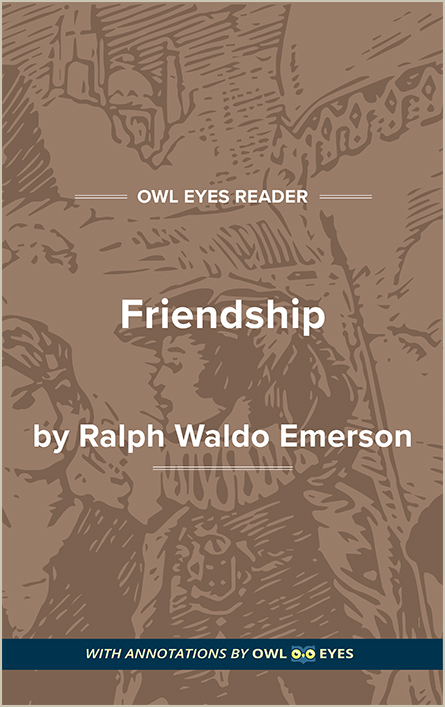Analysis Pages
Vocabulary in Friendship
Vocabulary Examples in Friendship:
"Friendship"
🔒"empyrean..." See in text ("Friendship")
"consuetudes..." See in text ("Friendship")
"vitiates..." See in text ("Friendship")
"Let us buy our entrance to this guild by a long probation...." See in text ("Friendship")
"spectacle..." See in text ("Friendship")
"magnanimous..." See in text ("Friendship")
"evanescent..." See in text ("Friendship")
"drudgery..." See in text ("Friendship")
"sutler..." See in text ("Friendship")
"lucre..." See in text ("Friendship")
"bower..." See in text ("Friendship")
"tough husk..." See in text ("Friendship")
"ennuis..." See in text ("Friendship")
"an element of love like a fine ether..." See in text ("Friendship")
"Maugre..." See in text ("Friendship")

